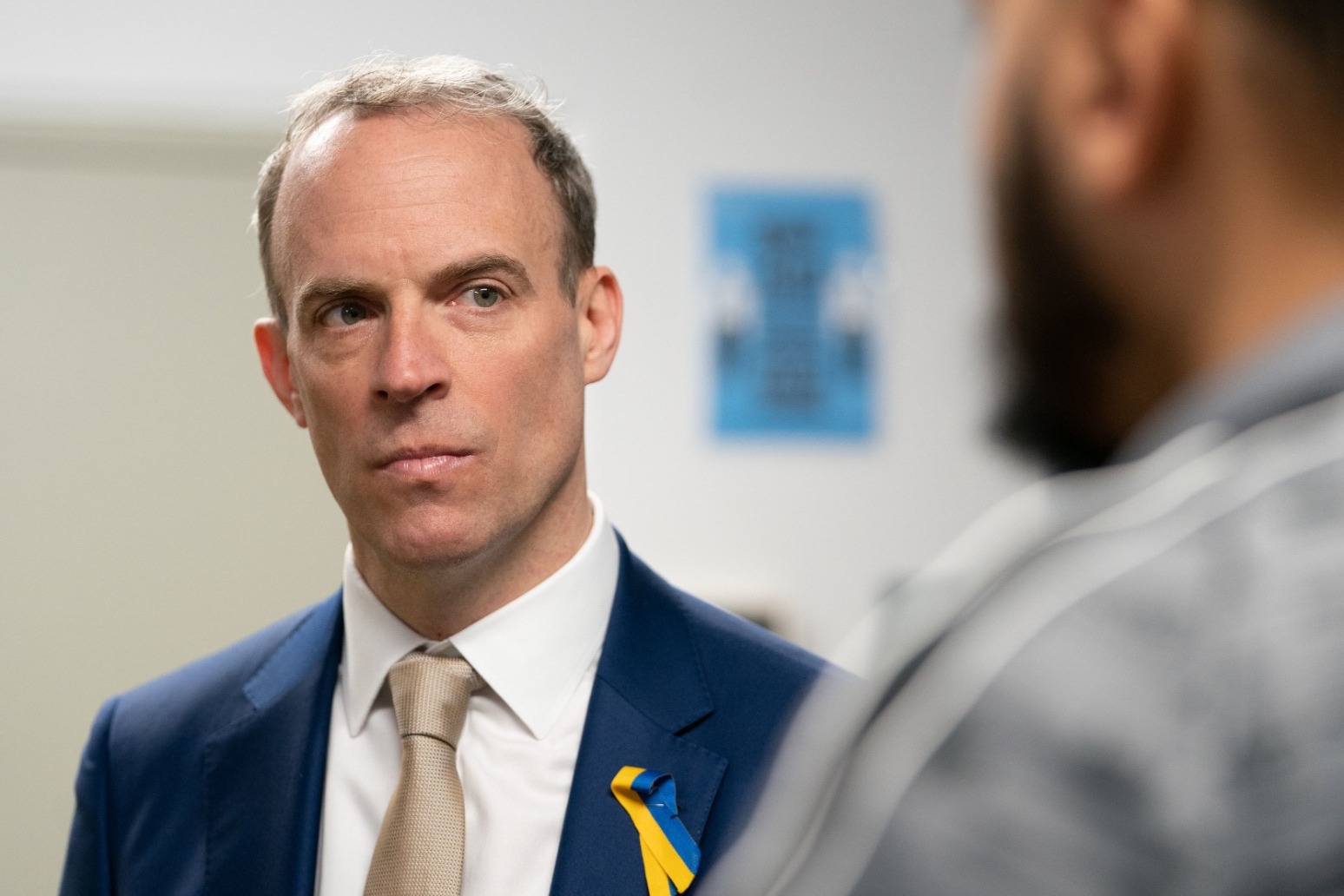
European decisions halting Rwanda deportations could be ignored under Raab plans
European Court of Human Rights decisions blocking removal flights to Rwanda would be ignored under a Bill of Rights also tasked with increasing deportations of foreign criminals.
Dominic Raab is introducing the proposed legislation to Parliament on Wednesday after the Strasbourg court disrupted the Government’s controversial flagship policy for asylum seekers who arrive in unauthorised journeys.
The Deputy Prime Minister wants the successor to the Human Rights Act to assert that British courts do not always need to follow case law from Strasbourg and that the Supreme Court in London is the ultimate decision-maker on human rights issues.
And the legislation would confirm that interim measures such as the one issued over the Rwanda policy are not binding on UK courts.
Labour warned the “con” would take rights away by removing a key obligation that has allowed women to force police to investigate rapes and for families seeking justice after atrocities such as Hillsborough.
But put to her that a legal human rights group had said the plans would make it much harder to access justice, Government minister Victoria Atkins told BBC’s Newsnight: “We simply do not accept that.”
Shadow attorney general Emily Thornberry questioned whether the move would actually change anything, or rather add “more and more layers of bureaucracy on the application of the Human Rights Act”, so it will merely “gum up the system”.
She accused the Government of “behaving like some sort of drunk” calling for a fight over the policy.
“They’re just trying to think of anything that they can take on at the moment in order to distract us all from what’s really happening, which is their inability to govern – they’re trying to pick yet another fight,” she told the BBC.
The Bill would create a permission stage in court where claimants must show they have suffered significant damage before their case can go ahead, to reduce “trivial” cases.
It would also seek to restrict the circumstances in which foreign-born people convicted of crimes are able to argue their right to family life trumps public safety in a bid to prevent their removal from the UK.
They would have to prove that their child would come to overwhelming and unavoidable harm if they were deported under the plans, which need the approval of Parliament.
Mr Raab, who is also Justice Secretary, said: “The Bill of Rights will strengthen our UK tradition of freedom whilst injecting a healthy dose of common sense into the system.
“These reforms will reinforce freedom of speech, enable us to deport more foreign offenders and better protect the public from dangerous criminals.”
But Beth Gardiner-Smith, chief executive of Safe Passage International, said the Bill would “strip us all, including refugees, of our ability to challenge injustice and defend our human rights”.
And Steve Crawshaw, director of policy and advocacy at Freedom from Torture, described the move as “yet another brazen attempt to concentrate power in the hands of the executive and weaken the public’s ability to hold the powerful to account”.
Mr Raab stepped back from demands from some Conservative MPs to pull out of the European Convention on Human Rights.
The first forced removals of asylum seekers to Rwanda on one-way tickets was due to take off last week, with ministers initially expecting around 130 passengers.
But legal challenges whittled down the manifest until on the morning ahead of take-off only around seven migrants or fewer were expected to be on board.
Then the European court granted an interim injunction barring the removal of an Iraqi asylum seeker until a decision on the legality of the Government’s policy is made in UK courts.
Strasbourg-based judges removed two others from the plane, while the Supreme Court granted injunctions preventing the immediate removal of three more.
Mr Raab’s legislation would confirm that interim measures from the court under so-called rule 39 are not binding on UK courts.
The Bill would also seek to protect Government plans to increase the use of separation centres for extremists from legal challenges based on the right to socialise.
Sacha Deshmukh, Amnesty International UK’s chief executive, said the legislation would represent “a giant leap backwards for the rights of ordinary people”.
“Ripping up the Human Rights Act means the public is being stripped of its most powerful tool to challenge wrongdoing by the Government and other public bodies. This is not about tinkering with rights, it’s about removing them,” he said.
The Ministry of Justice has also said the Bill would boost press freedom by introducing a stronger test for courts to consider before ordering journalists to disclose their sources.
But Labour issued a warning over the Government’s intension to constrain the ability of courts to impose “positive obligations” on public services such as the police that was afforded under the Human Rights Act.
Shadow justice secretary Steve Reed said: “Labour is proud that the Human Rights Act has allowed millions access to justice, protect victims of crime, and ensure our loved ones get the care they need.
“But this Conservative ‘Bill of Rights’ con will take those rights away, preventing people with health problems from objecting to ‘do not resuscitate’ orders being placed on them in hospital without their consent, block women from forcing the police to investigate cases of rape, and will stop victims of terrorist atrocities and major disasters like Hillsborough from seeking justice.”
Published: by Radio NewsHub